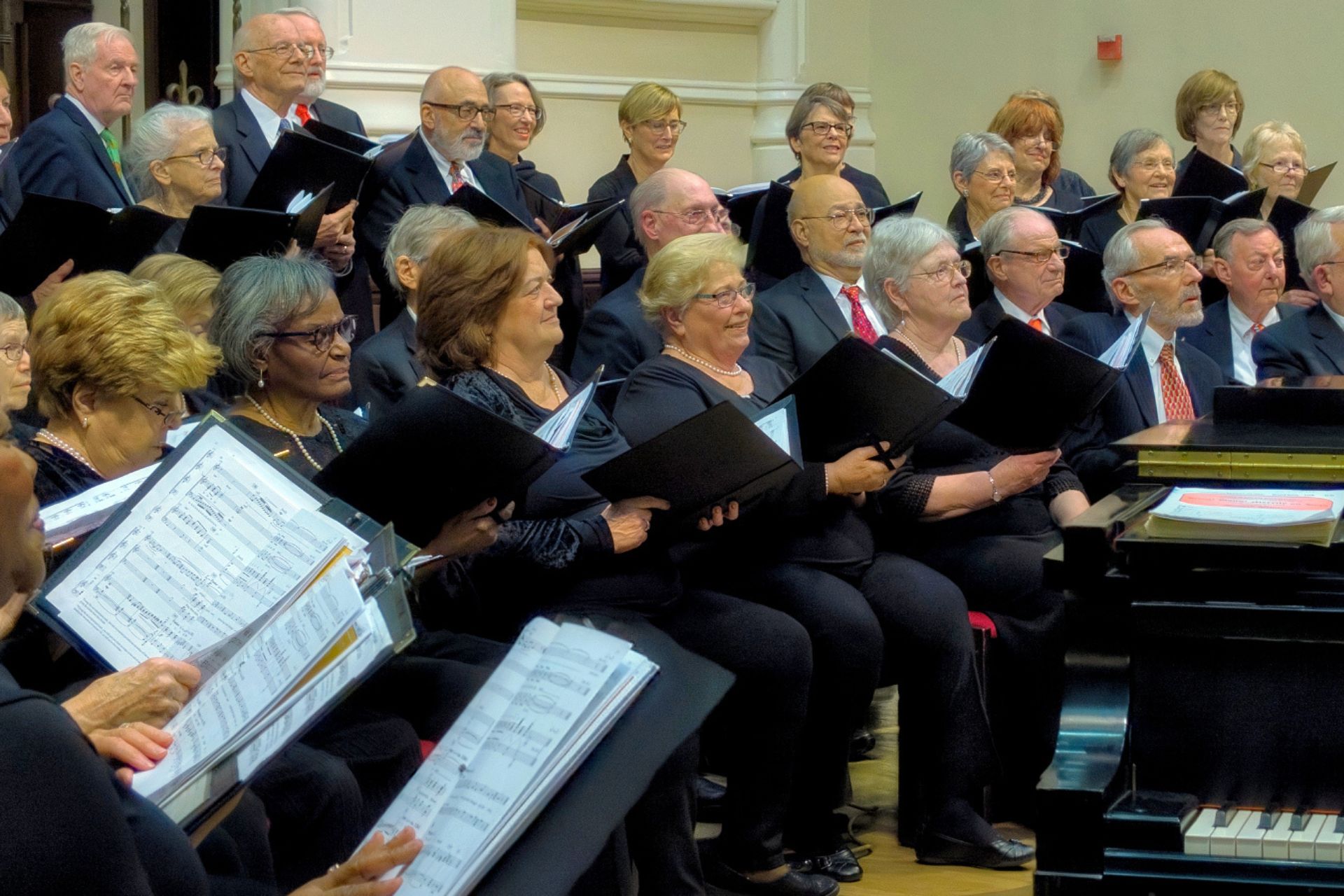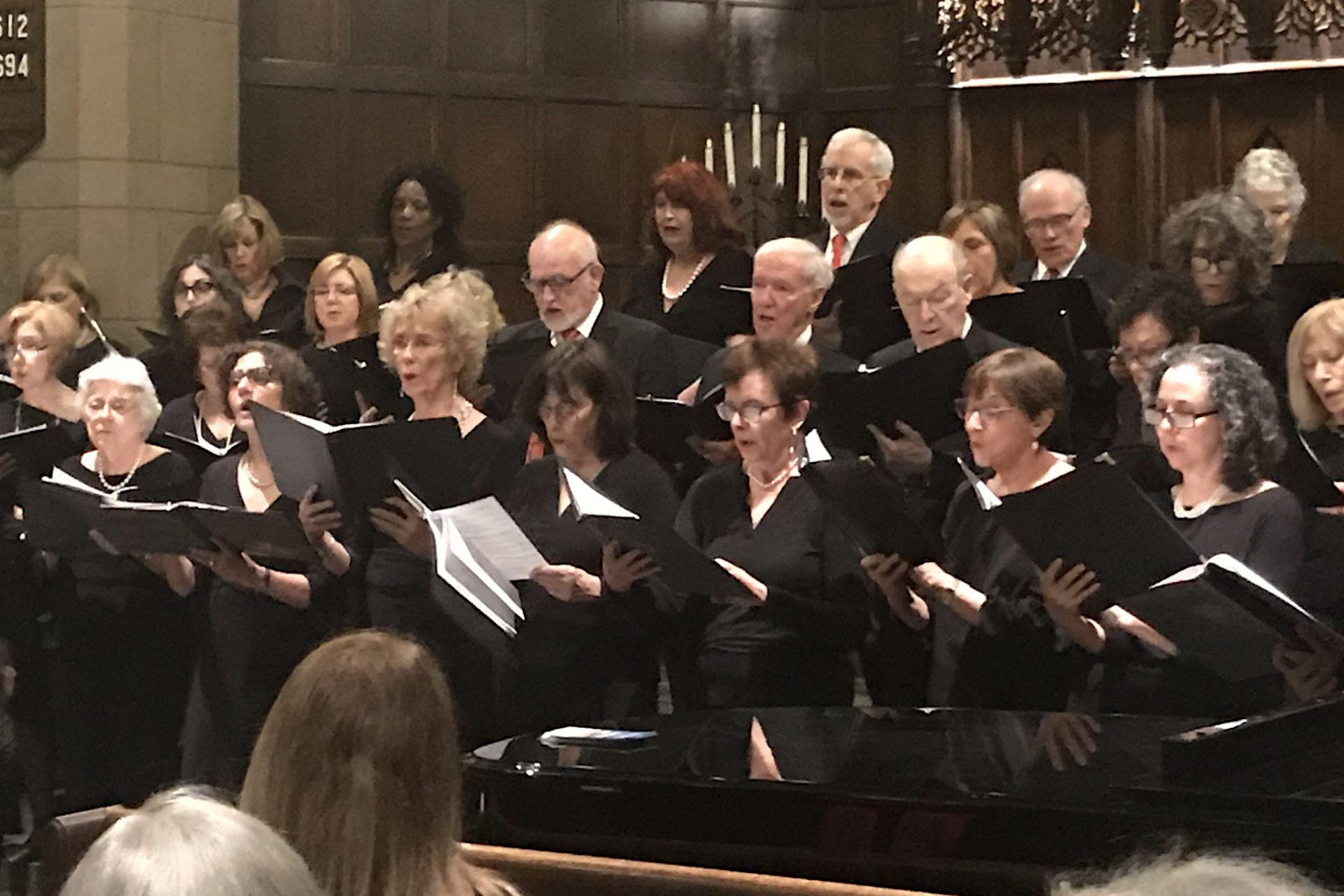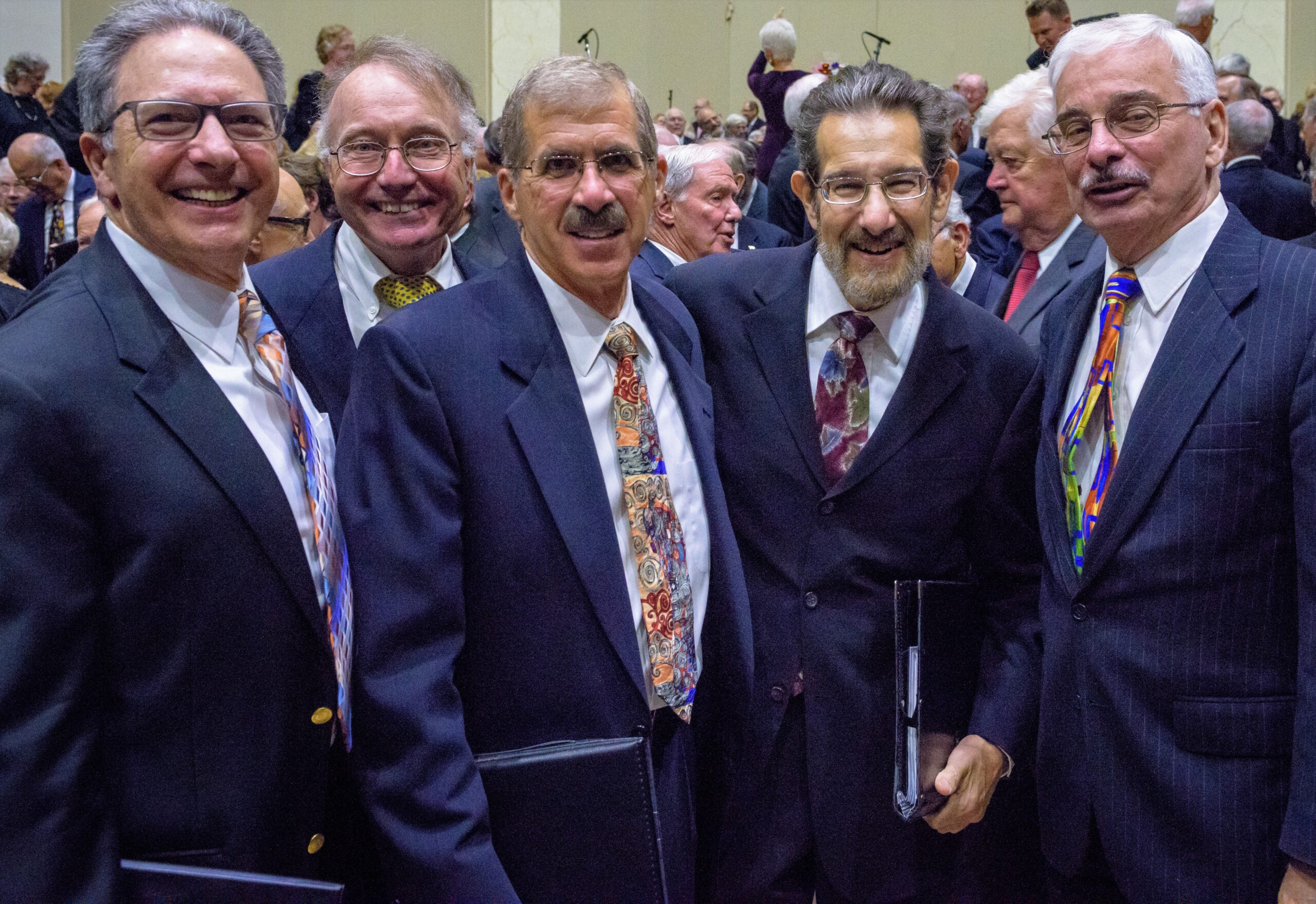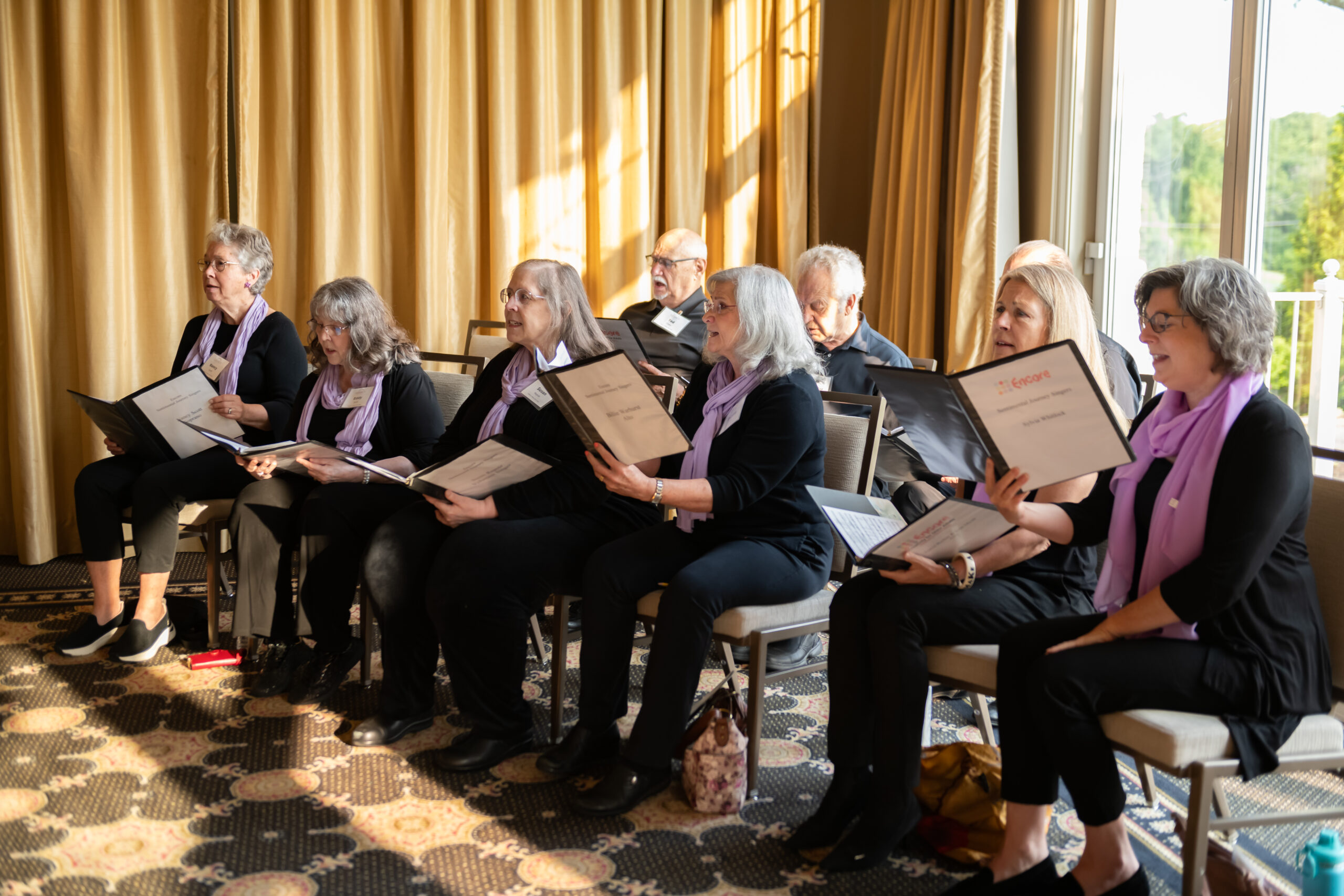Why We Sing
Sing for Life
Why do we sing? What can singing do for you? Creative aging is the concept behind Encore Creativity for Older Adults: that staying creatively active as we age can have immense social, physical, and mental benefits. Encore was founded on the idea that creativity should be accessible, open, and—most importantly—fun and exciting for all!
In our busy world, it can be so easy to let creativity fall by the wayside. But no matter how much time you spend singing, it can benefit your life in profound ways. In fact, participants in the Creativity and Aging study that inspired Jeanne Kelly to found Encore Creativity for Older Adults were happier, healthier, and felt more fulfilled just from singing in a chorale for ninety minutes per week. These benefits persisted far beyond the rehearsal room.
In recent years, major organizations such as AARP have shared the benefits of staying creatively active, and, particularly, on the benefits of music, as we age. From JoAnn Jenkins, AARP CEO, in a July 2024 newsletter: “Listening to and making music hold significant potential to support our brain health.”
Isolation, physical inactivity, and creative inertia are some of the leading causes of poor physical and mental well-being for older adults. Encore seeks to change this—to benefit the health of older adults everywhere, one song at a time.
Read the excerpts below for more information on how singing and Encore’s programs can become a positive influence in your life!
Music and Community

Singing in a group such as an Encore Chorale or Encore ROCKS ensemble means getting involved in a like-minded community of music lovers, harmonizing voices, and coming together to form a greater whole.
Singing is an inherently social activity, especially chorales and choirs. With loneliness ranking as one of the highest health risks among older adults, forming connections is crucial. Older adult singers have consistently reported that singing involves them with their community in a considerably positive way, reducing levels of social isolation. Participants in the Creativity in Aging Study cited a higher daily morale, a decrease in depression, and more interest in everyday life just by participating in the chorale program. Numerous studies point to the benefits of living well by living creatively.
Music and Health
Physical
Singing is uniquely suited to improve your physical health. Singing supports breathing and lung function, promotes proper posture, and reduces tension. To sing well means to sing with the goal of improving all aspects of your body and mind.
Studies have shown that singing produces endorphins, which can act as a distraction from pain or a reduction in pain responses. Preliminary research shows that singing can even promote immune responses in the body, preventing the risk of further illness.
The research that began Encore Creativity for Older Adults, the Creativity in Aging Study, found that older adults who sang in a choir for 90 minutes per week had fewer falls, a lower number of prescription medications, and visited the doctor less frequently than those who did not sing.


Emotional
Singing is linked to a reduction in depression and negative moods. When singing, the body produces endorphins, reducing our feelings of stress and anxiety. Group singing substantially improves mental well-being because it provides a creative, positive outlet. Singing is so profoundly affective that it can boost mood immediately after participating in a short singing session.
Music therapy has been used in a wide variety of settings to improve patients’ emotional health and reduce stress, from significant improvements in baseline mood and morale for those with clinical depression to a decrease in anxiety before medical treatments and procedures.
Music and Memory
In recent years, researchers have given considerable attention to the link between music and the brain. In particular, the fact that singing engages multiple parts of the brain simultaneously – the regions involved with hearing/listening, movement, attention, language, emotion, memory, and thinking – helps to harmonize brain functions. In the landmark paper “Music on Our Minds: The Rich Potential of Music to Promote Brain Health and Mental Well-Being”, AARP and the Global Council on Brain Health found that music not only keeps us active and engaged, but also has strong therapeutic properties for those experiencing cognitive change. Because of the many health benefits of music, they write, “music-based treatments are being used in therapy for dementia, where it has been shown to help reduce stress, promote morale and encourage interpersonal connections”.
Encore Creativity’s Arts for Life programs arose from the connection between music and memory – and the joy and relief that singing can bring to all.

Connection
Arts for Life programs connect those with cognitive change and their care partners through song. The powerful bonds that form through singing can reach across generations to rebuild or rekindle relationships. In one study that followed older adults in a long-term care facility and their care partners, participants and families experienced incredibly positive benefits from singing with each other, particularly in their relationships. One participant said, “For me, I looked forward to the bond/experience of participating in a choir with my dad. . . I’m really glad we signed up” (Singing for Health, Connection and Care).
Cognition
Music can trigger recollections of long-forgotten memories – far more powerfully than other senses – and singing is one of the strongest ways to forge those bonds. Researchers believe this is because music uses long-term “implicit” memory, a type of unconscious memory that persists even in cases of dementia. Singing taps into “procedural” memory, which forms long-term recollections and stores cognitive skills. When we perform a song that we’ve heard many times before, the words (and memories associated with them) can come flooding back.
Learn More
The health benefits of music are far-reaching and studied every day by researchers, scientists, and gerontologists alike. To learn more about the connections between music and physical, mental, and social health, consult the peer-reviewed literature on this page, read the latest white paper by the Creative Aging Innovation Forums, or check out Sound Health Network from USCF.
Sing With Us!
Now that you know the many health benefits of singing, we want you to sing with us! No matter where you are on your musical journey, Encore will meet you there.
